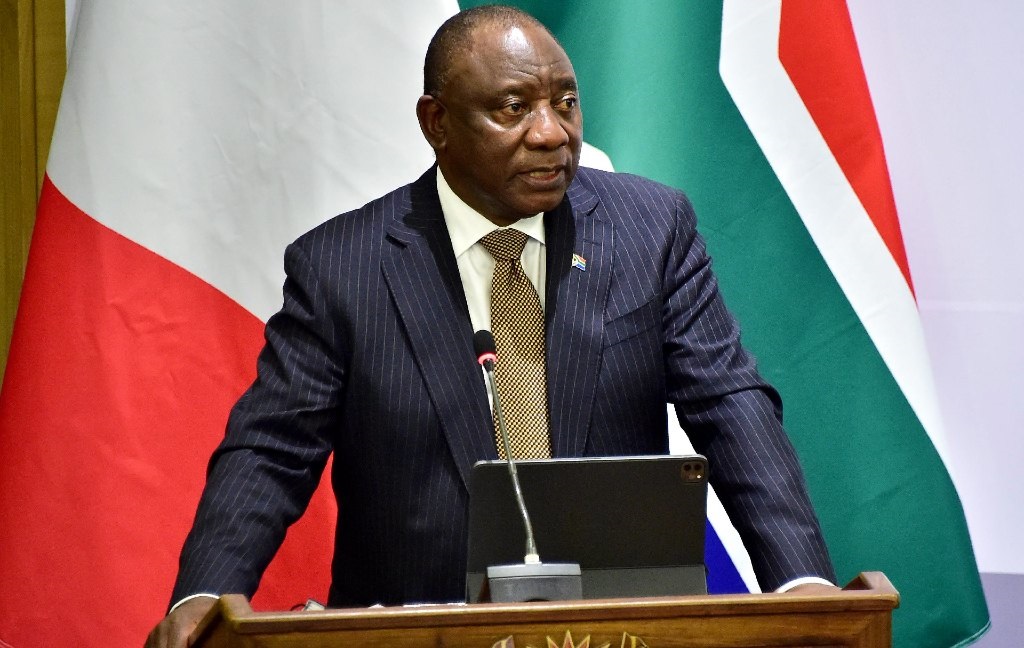
The president's lockdown requests are reasonable, but questions remain about why the government didn't act quicker to curb the Delta variant, writes Adriaan Basson.
There was no ban on cigarettes, rotisserie chicken or open toed shoes as President Cyril Ramaphosa moved South Africa to alert Level 4 on Sunday evening in a desperate effort to protect the country against the devastating impact of the so-called Delta variant of Covid-19.
There can be no doubt that almost 15 months since South Africa entered lockdown for the first time, Ramaphosa and his administration have adopted a much more sensible approach to balance healthcare, the education and the economy in these uncertain times.
Ramaphosa's request on Sunday night to lock-up for two weeks in an attempt to reverse the rapid growth of the Delta variant is reasonable on all levels. The biggest question that remains is how effective the 14 days "circuit-breaker" will be in light of the fact that the Delta variant was already reported in the country in early May.
Many critics will argue that these interventions are too little, too late. ICU beds in Gauteng are full, healthcare workers are overwhelmed and the Delta variant has definitely made its way into many cities and towns over the past two months.
Unanswered questions
The health department will have to explain when exactly the National Institute for Communicable Diseases (NICD) was made aware of the arrival of the Delta variant and why it thought it could be contained without applying stricter lockdown measures two months ago.
In early May, the NICD reported four cases of the variant, which arrived with South Africans who had visited India, but there is no doubt that these cases grew exponentially over time. Why wait until the effective collapse of Gauteng's hospitals before introducing more stringent lockdown measures?
While we seek answers to these questions – and we will – the majority of South Africans are unlikely to oppose Ramaphosa's very reasonable requests for the next two weeks: don't gather, don't go to restaurants, work from home where possible and keep your children at home when schools close for an early holiday.
One must feel for the alcohol industry that has done everything possible to be responsible citizens in a time of crisis, but faced with the reality of full hospitals and ICU beds in Gauteng and elsewhere soon, they are unfortunately, again, collateral damage of a bigger cause.
Most businesses, with the exception of the alcohol and restaurant industry, will be allowed to operate normally, with an emphasis on the strict application of behavioural protocols.
These are not unreasonable requests in light of the rapidly growing cases and deaths, that will soon reach the 20 000 mark per day.
What Ramaphosa's next steps should be
For Ramaphosa to succeed in keeping the nation on-side, he needs to expedite two things: the fast and efficient further rollout of vaccinations in partnership with the private sector and stabilising and strengthening the leadership of the health department in the wake of the tender scandal surrounding Health Minister Zweli Mkhize.
The health department urgently needs a permanent leader to steer its critical actions. We are in the middle of a global pandemic and, despite her best intentions, acting Health Minister Mmamoloko Kubayi cannot be expected to split her time and attention in two places. Whether it's her or someone else, Ramaphosa urgently needs to deal with the Mkhize matter to stabilise the health department.
It was encouraging to hear the president say that the fourth stream of vaccine rollouts will be through workplace programmes in the mining, manufacturing and taxi industry. These industries, and other, have been at pains to assist the government to vaccinate their workers expeditiously.
With a vaccine shortage no longer a stumbling block, the private sector should actively be partnered to expedite vaccination of South Africans, before the arrival of the next variant and a potential fourth wave.
Lastly, Ramaphosa was correct to strongly rebuke the EFF and its leader Julius Malema for undermining the scientific authority of the South African Health Products Regulatory Authority. But this should be followed-up with punitive action against the organisers and further investigations into the EFF's relationship with Russian vaccine-makers, who cynically applauded the "activists" for their deadly march.
- Basson is editor-in-chief of News24.
To receive Opinions Weekly, sign up for the newsletter here. Now available to all News24 readers.
*Want to respond to the columnist? Send your letter or article to opinions@news24.com with your name and town or province. You are welcome to also send a profile picture. We encourage a diversity of voices and views in our readers' submissions and reserve the right not to publish any and all submissions received.
Disclaimer: News24 encourages freedom of speech and the expression of diverse views. The views of columnists published on News24 are therefore their own and do not necessarily represent the views of News24.
